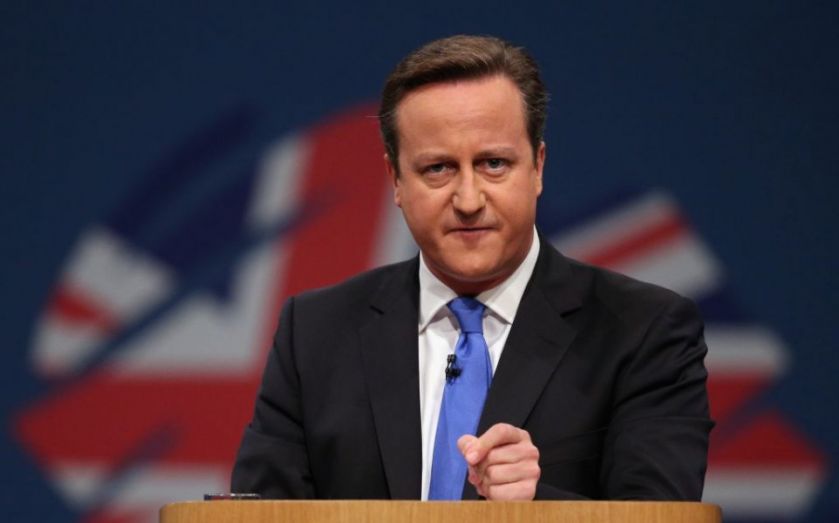Britain’s future lies in a reformed EU but the Tories are putting that at risk

When the British people cast their votes on 7 May, they face a real choice. Do they want a Britain hankering for the past, or preparing for the future? Do they want a Britain closed to the world, or open to opportunity? Do they want an economy and a country that works only for a narrow few, or broad-based prosperity in a nation where everyone has a stake?
We can all see and feel how fast the world is changing. If we are ready, technological advances and the rise of emerging markets can create vast new opportunities for Britain to succeed. But the process of change is creating real insecurity and uncertainty for people, as business models change and technology makes entire occupations obsolete. We can and we must shape these forces of change so that our economy works for all – tackling the cost-of-living crisis and controlling immigration with fair rules. We can then embrace the future with an open, outward-looking approach to the world.
Nowhere is this clearer than in our approach to the EU. Yesterday I spoke at the Japanese Chamber of Commerce to some of the 1,300 Japanese businesses which have invested in the UK, creating 130,000 jobs. They understand as well as any business in Britain the advantages of our EU membership.
Advantages such as scale. The UK is a country of only 64m people. Through the EU, British-based companies have access to a market of more than half a billion. Advantages like reach. It is through the EU that UK businesses can gain access to markets all around the world, quicker and on better terms than if we negotiated alone. And – as investments by Japanese companies from Nissan to Nomura, and Honda to Hitachi show – attractiveness to inward investment, with Britain as a gateway to the European market.
With inward investment has come new ideas. British workers combined with Japanese manufacturing processes make the Nissan plant in Sunderland the most productive in Europe. This is good for Japan and great for Britain. But it depends on Europe. There are some – like Conservative MPs Owen Paterson and John Redwood – who have tried to muzzle the voices of business for daring to speak this truth. But it is right that people are given information about the implications for investment and jobs of Britain leaving the EU.
This is not an argument for the status quo in Europe. The EU needs to change to make it work more effectively, become more growth focused, and address legitimate concerns people have. That is why Labour will continue to make the case for reform, not exit.
Labour makes no apologies for putting the case for a reformed EU at the centre of our election offer to business. We have set out clear, credible and concrete ways of delivering real change. This change is achievable, but only through negotiation, alliance building, and by finding common cause with others.
By contrast, the hostile approach to our EU partners taken by the Prime Minister and his Conservative Party, aping Ukip, has proven entirely counterproductive and downright dangerous. Former European Commission president Jose Manuel Barroso has warned that Britain’s influence in Europe is suffering under this government. He said that, under Tony Blair and Gordon Brown, Britain was “at the centre of decisions”. This was “no longer the case” under David Cameron, with his hands tied by anti-European sentiment within the Conservative Party.
With no positive agenda, Conservative voices from the past are trying to hijack the debate and hold Britain’s future hostage. We can’t let them succeed. Hobbled by his own party, Cameron remains isolated in Europe. Without allies, he simply cannot provide the leadership needed to deliver reform. It will take a Labour government – future focused and prepared to engage constructively with our European partners – to put the UK back in the driving seat.